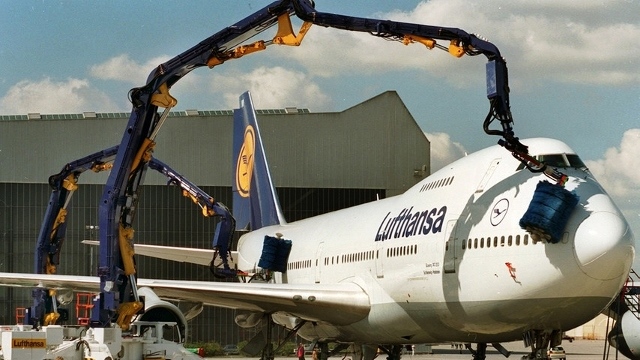Exploring Sustainable Aviation Fuel: Insights from Civil Aviation Ministry’s Consultative Panel
The civil aviation ministry announced on Friday that a committee on the bio-aviation turbine fuel program, established by the Petroleum & natural gas ministry, has delivered its report on promoting clean fuel in aviation. The ministry outlined several initiatives aimed at reducing carbon emissions and made this announcement. Civil aviation minister Jyotiraditya Scindia chaired a meeting of the consultative committee of the civil aviation ministry on Friday, attended by various Parliamentarians, where they discussed the topic of Sustainable Aviation Fuel (SAF).

The International Civil Aviation Organization (ICAO) is taking measures to reduce carbon emissions in civil aviation, with its objectives including achieving an annual fuel efficiency improvement of two percent through 2050.
India has committed to achieving net zero by 2070 at COP26 under the United Nations Framework Convention on Climate Change (UNFCCC). To accomplish the decarbonization of the aviation sector, the Ministry of Petroleum & Natural Gas (MoPNG) has implemented the National Policy on Bio Fuels 2018.
The Ministry of Petroleum and Natural Gas (MoPNG) released a statement on Friday, announcing the formation of the Bio-Aviation Turbine Fuel Programme Committee to promote the use of clean fuel in aviation through the Bio-ATF Programme in India. Various stakeholders have received the circulated report from the Committee.
In its effort to reduce carbon emissions and promote the use of SAF, the ministry has listed several initiatives, including Indian Oil Corporation Ltd’s (IOCL) plan to set up an 86.8 TMTPA plant in Panipat using LanzaJet ATJ (Alcohol To Jet) Technology. Additionally, IOCL has signed an MoU with Pune-based Praj Industries to develop ATJ fuels.
Furthermore, Mangalore Refinery and Petrochemicals Ltd are planning to construct a bio-ATF pilot plant in Mangalore, utilizing non-edible oils and used cooking oil as feedstock with the aid of CSIR-Indian Institute of Petroleum’s technology.
DGCA
The Directorate General of Civil Aviation (DGCA) has granted permission to AirAsia India to conduct the first commercial domestic flight using 0.57 percent SAF-blended fuel, according to a release. Meanwhile, SpiceJet demonstrated a flight from Dehradun to Delhi using 25 percent SAF produced from Jatropha seeds by the Indian Institute of Petroleum, CSIR lab, in August 2018. In February 2022, IndiGo operated a ferry flight with 10 percent blended fuel from Toulouse to Delhi, while Vistara conducted a similar flight using 30 percent blended SAF from Seattle to Delhi in March of this year.
ICAO has implemented several measures to reduce emissions, such as the Carbon Offsetting and Reduction Scheme for International Aviation (CORSIA) and the Long-Term Aspirational Goals (LTAG). CORSIA has been split into three phases, with participation in the first two phases between 2021-2026 being voluntary. However, India has opted not to participate in these phases and will only be required to meet offsetting requirements under the CORSIA starting in 2027.
According to the ministry, this move will provide an opportunity for airlines in developing countries like India to grow and avoid financial repercussions caused by CORSIA participating in the voluntary phases.
For international flights that travel from one country to another, CORSIA applies and individual airlines will be responsible for bearing the financial implications associated with offsetting, depending on their international operations and when they apply.
The ministry has held multiple meetings with domestic carriers to make them aware of the impact of CORSIA on airlines when the mandatory phase comes into effect.
Furthermore, India has taken several measures, such as joining the Assistance Capacity Building & Training for Sustainable Aviation Fuels Programme by ICAO.
Also Read: Indian Aviation News
Go through, the Mall of Aviation
For the best HELIPAD CONSULTANCY



